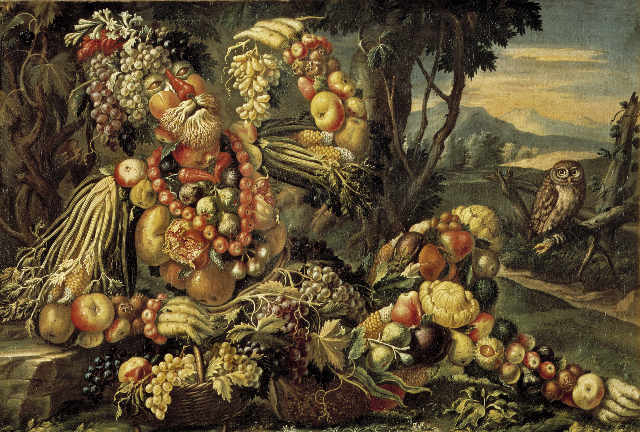St. Helens University agronomy department was not the stuff of which headlines are made, but as a professor of horticultural science, he knew that his recent discovery, and the terrifying message he was entrusted to deliver, had to reach people with maximum impact. There was no time for academic papers. It had to be hammered into the public consciousness, or it could be fatal. More than individually fatal, it could have horrible consequences for the entire world.
When did he first know? He remembered being fascinated with the thought of communicating with other beings as his scientific mind started to develop.
At primary school there was a teacher who encouraged his talking to plants and he listened to her theories on how plants responded even though the rest of the class thought she was a nutter.
And there was that short story in Playboy magazine, read surreptitiously in his teenage years, behind a locked door having worn out the fantasy of the photographs. It was a story of a man who experimented with talking to plants. It was pure fiction of course, but Wynam had always remembered the repetitive, eventually fatal line the plant researcher, scientist and adulterer had used while giving his wife a tour of his laboratory: ‘contrary to popular belief.’
The scientist’s wife shot him and his alluring female assistant, saying: ‘Contrary to popular belief, dear, daisies do tell.’
When Wynam’s university studies in horticultural science called for a speciality, his became the psychology of plants. First, because no one knew much about it then and what was known amounted to folk tales and urban myths and outside the mainstream of science, so it left the playing field open for him. Second, since plants played such an important part in world welfare, he felt he could make a scientific contribution to benefit all mankind, but really he wanted to do something that would be remembered, that would make a difference. He often daydreamed of being pictured on a postage stamp.
This discovery about which he had to tell the world was pressing on Wynam’s mind to the point of migraine. He faced the most difficult trial of his entire career in presenting his plea to the university hierarchy, and it was centred precisely on the premise of communicating with plants. Except Wynam now knew it was more than a premise. He had proof.
It wasn’t until just last summer that his efforts in plant communication became focussed, and that happened only when he started learning more about his late parents.
It was just after his Aunt Clothilde had died and he had to clear out her house that he discovered an old leather suitcase laid flat in a corner of the loft filled with his parents’ diaries, papers and ephemera. He had never felt the need to ask about his parents and she had never volunteered.
It was Aunt Clotilde, his mum’s spinster sister, who saw to Wynam’s rearing after Mr and Mrs O’Nion’s untimely deaths. There were no photos of them around the house as Wynam was growing up, so these ancient artefacts Wynam was unfolding and reading were like discovering a lost civilisation, except that this civilisation had begat him.
‘Mum. Dad,’ Wynam tried the words aloud as he sat in Clothilde’s old sitting room surrounded by the chaff of their life. He was entranced by what he had discovered about his parents in a single container and by what they thought and how they acted. There was no overall blueprint for their lifestyle, but it was starting to form in Wynam’s mind as ‘Hippies Gone Back to Nature’ the more he read.
Wynam had been pretty much on his own since his parents, medieval history academics, died horribly in an accident during a recreation of the Battle of Evesham when he was seven. It was noted at the funeral service that Wynam’s father, as Simon de Montfort, the Earl of Leicester, had actually died one year earlier than was historically accurate. Or, that’s the story he was told at their funeral.
Not that Wynam and his parents were ever that close in his seven years with them. He was accidentally their only child and had been left alone with his books much of his early years. If pressed, Wanda and Wilfred would have admitted it was partly because their child’s unusual appearance prompted too many questions, but mostly because a child was a burden on those long weekends away celebrating life.
So, the heir to the O’Nion name continued his solitary life, resigned to the fact his presence made people uncomfortable, but content with his abilities, his reading and passion for science filling his life. Until now, that is, when this parcel from the past conjured up a new light in his life that would illuminate many unanswered questions.
Inside the box that smelled faintly like wet on dogs there were research papers on the early forms of the Maypole celebration in England, Greek gods, Pagans and witchcraft; a smallish leather-bound copy of a book titled ‘Rites Omnia in duos’ that contained ancient hand-written barely legible notes accompanied by some erotic drawings and a few black and white photos. It was the photos that grabbed Wynam’s eye, for there were his Mum and Dad staring back at him over the lost decades in their time capsule tie-dyed shirts and long flower-bedecked hair. There they were again, only this time with different retro dress. As he shuffled through the photos, Wynam noticed a theme – they were all taken outdoors at some sort of rural gathering. Wynam noticed the photos also frequently included a curly headed man referred to as ‘Wheat’ on the back. ‘Wilfred, Wheat and me, Devon 1965’; ‘Wheat and me, ’66; Near Grimslade’, May Day 1967.’
Wynam remembered opening a leather-bound A4 journal that apparently had been used by both his mother and father and set about deciphering the hand-written entries.
They appeared to have been fascinated with Greek and Roman mythology, for there were entries like:
“Marsyas flayed by Apollo. His skin put up on a pine tree at Celaenae – ritual perpetuated as reviving the life of vegetation in spring.” (his resurrection)
ref: Persephone/Demeter power of yearly renewal of vegetation. Girl’s virginity taken to bring forth offspring.
Roman Floriala – 28April- 1 May..sex
“Mother goddesses mated each year in rituals to ensure the fruitfulness of the ground, essential to the propagation of plants. The Golden Bough, Frazer.
Fertility of the soil depended on intercourse of women with strangers. Gods bestowed on them favours. The Book of Ser Marco Polo, Col Yule”
Sympathetic magic, as people sought to recreate what they saw in nature, so intercourse in fields they believed help helped to make the earth more fertile. God and goddesses consummate ‘marriage’, symbolic gesture of fertility. Fertility for crops and women and animals.
Wynam reached inside the old suitcase unconsciously as he read and pulled out an old audio cassette tape. It was Frank Zappa, Absolutely Free and snapped it in Clothilde’s multi-purpose boom box he remembered being always tuned to Radio Four. Now it spit out early Zappa music, not exactly Wynam’s favourite, but he wanted something to break the quiet of the house while he read.
He was getting a sense now that his parents were more than just flower-power hippies. A pattern was emerging here that they studied ancient rituals that had to do with the fertility of crops; that they were actually researching how humans looked at the universe, their gods, and the crops that gave them life. More than researching, it seemed. Hell, they were living it. Not that medieval history crap he had been told.
“The life-giving properties of sacrificial blood soaking into soil demonstrated in several ancient rituals globally. Human sacrifice for the good of the crops – also Mindinao (Wild Tribes of Davao District 1913 – Bagobos)”
Pagan Beltane (English Roodmass), pre-Christian rites of fertility including intercourse, then toned down. Fire. Water. Earth, Air.
Greenwood Marriages. May Day celebrations. Couples went off to the woods to find branches/Maypoles and spent the night with each other. Maypole phallic symbol representing the seed, spirit of summer, new growth the fertilizing spirit of vegetation; women the earth, the womb.
Carline – sacrifices, human then animal, then Wicca-men sacrifices. Usually burned. Ashes considered good fertility for soil.
Agnus Castus anaphrodisiac.
And a separate untitled journal which was handwritten on the inside:
Le compte du géant de Bartone
Fr Vaultier
On and on, Wynam pored through the notes of his creators building a picture of a human interpretation of the natural cycle very close to his work. The import of it was sinking in when the music in the background took over his consciousness and he heard the lyrics.
Call any vegetable call it by name
Call one today when you get off the train
Call any vegetable and the chances are good
Aw, the vegetable will respond to you.
He listened for more.
Call any vegetable pick up your phone
Think of a vegetable lonely at home
Call any vegetable and the chances are good
That a vegetable will respond to you
Was that what he heard? Here he had been following a theory and suddenly it hit him.
No one will know
If you don’t want to let them know
No one will know
‘less it’s you that might tell them so
Call and they’ll come to you
Covered with dew
Vegetables dream, of responding to you
There were prophetic words. His research was with the wrong kind of plants.
Standing there shiny and proud by your side
Holding your hand while the neighbors decide
Why is a vegetable something to hide?
You know a lot of people don’t bother about their friends in thevegetable kingdom. They, they think: what can I say? Some timesthey think: where can I go?
Thanks Mum. Thanks Dad. Thanks Frank. That’s when I first knew. Frank Zappa told me.
FIRST CONTACT
EVOLUTION OF PLANTS ENCOMPASSES MANKIND
Man has officially made contact with beings from an alien civilisation and they are not pleased with us, Quentin Bartholomew writes.
In a monumental scientific discovery, a St. Helens University plant scientist has established a method of communicating with plants. Professor Wynam O’Nion has had months of conversations with various vegetables through a device that receives then translates their speech into English. In turn the same device sends English words back in the vegetables’ language.
That we have made contact, indeed true communication with the ‘Verdure’ as they call themselves, is an established fact. I personally have talked with them and can report they represent a cultured, sensitive race of beings capable of expressing feelings similar to that of man.
I am fully aware of Pathetic Fallacy, the John Ruskin (1819-1900) originated figure of speech that attributes human feelings to nature. But Professor O’Nion has taken us beyond that fanciful asseveration which provided writers with many profitable pages, to the stage where mankind now faces the reality of speaking directly to what previously were thought to be inanimate, though living, objects. And not only speaking, conversing.
There is no parisology in talking with the Verdure. They are straightforward, brutally honest, even clever in their speech. And they are pissed off.
Let me explain. Over the centuries mankind has dealt with its inhumanities to man with shock, shame, then more of the same. The genocide we saw in World War Two, and were shocked and shamed by, we saw in Bosnia, in Africa, in Iraq in later years. Again we were shocked and shamed, but it was more of the same.
The Verdure want the world to know of another genocide — scientific genocide– medical experiments on the genes of various vegetables which threaten their culture. It is a genuine concern and hurt to the Verdure that we have laboratories working to change the way vegetables flower, react to sunlight, fight disease and insects. A hurt they consider a crime against nature itself. A genocide.
These are proud vegetables — a race that has a language, culture and history, and has the means to decide its own fate. The Verdure have asked mankind to stop.
I should mention it is a request with an ‘or else’ at the end of it. One might ask, as I did, what kind of ‘or else’ can a carrot have? How will a beetroot beat you? What threat is a cauliflower to your life? Considerable, once you learn what I have learned.
The Verdure do have the ability to become toxic –poisonous to humans — if they choose. It is this toxic ability which the Verdure are using as their leverage in this request from us. It’s more power than any other victim of the world’s atrocities ever had, yet the Verdure are asking the world politely for humane treatment. It would be a pathetic fallacy if we did not listen.




